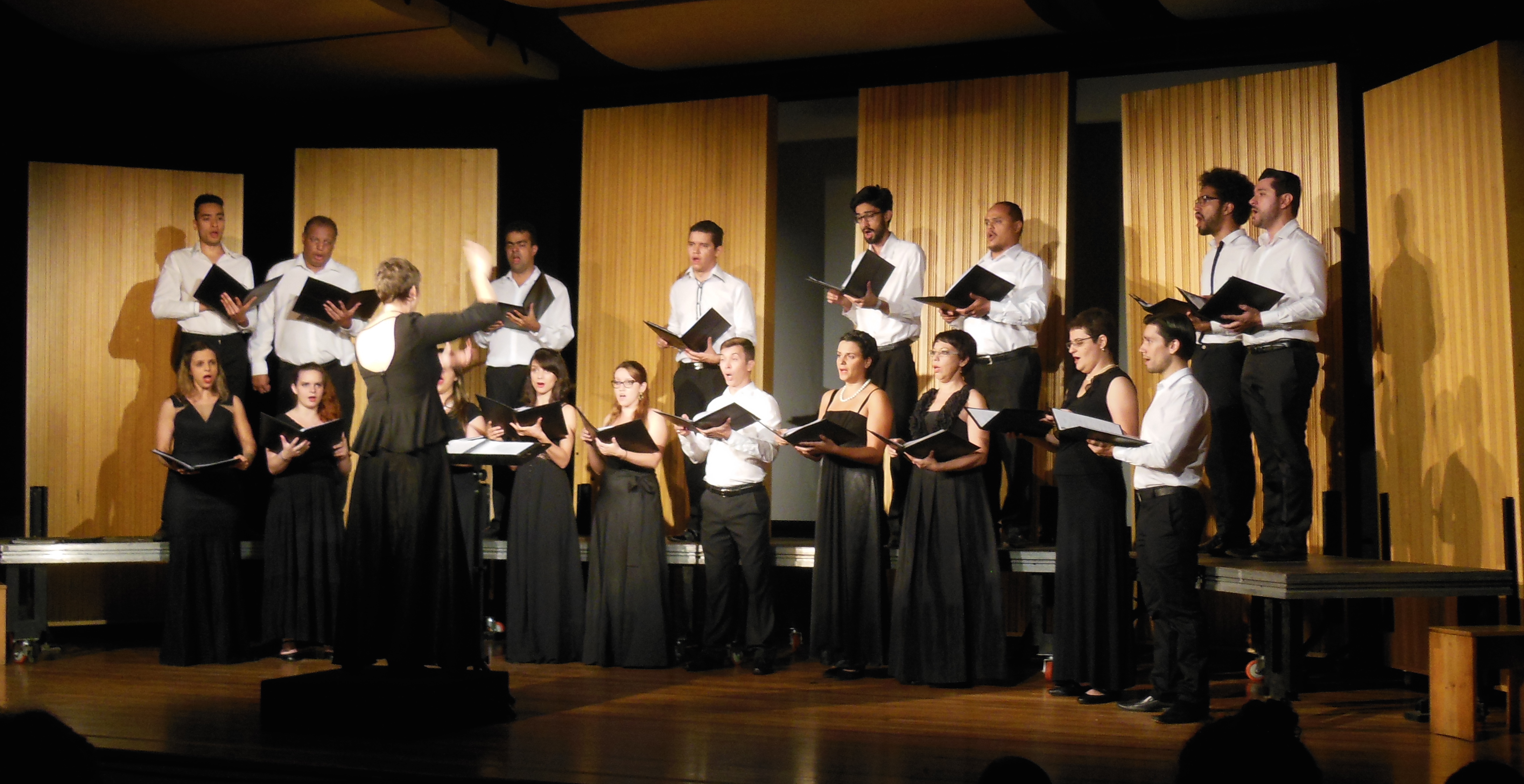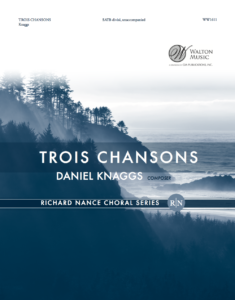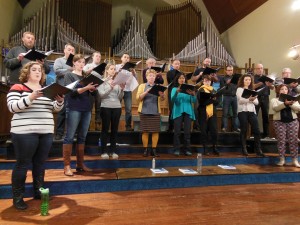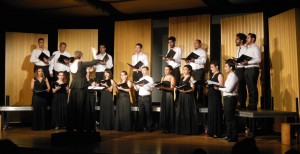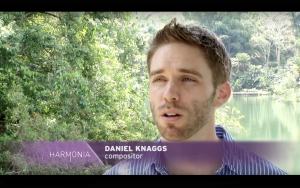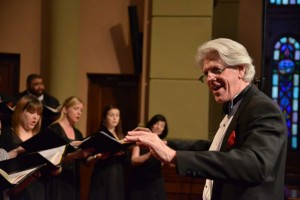Trois Chansons for SATB choir a capella (w/ divissi)
World Premiere: Ars Nova coral da UFMG, Iara Fricke Matte, cond., Inhotim, Brumadinho, Brazil, 10.24.2015.
North American Premiere: Vancouver Chamber Choir, Jon Washburn, cond., 11.13.2015
Other performances: Houston Chamber Choir (III. Chanson d’un demain) 9.18 and 9.20.2015, Ars Nova Coral da UFMG (Belo Horizonte, Brazil), 11.05 and 11.26.2015.
Written for the Trois Chansons Project involving 33 choirs from 19 countries.
Review from German choral journal Chorzeit: Click here to read the full-page review in the original German or here to read it in English translation.
Duration: ca. 13 min
Hear Trois Chansons performed by the Vancouver Chamber Choir below (used with permission):
I. Les en voulez-vous garder?
II. Le Val des Ronces
III. Chanson d’un demain
Program Notes: For some years now, I have entertained the idea of writing Trois Chansons. In these chansons, I continue my compositional exploration of time, dialoguing with the past and future. Here I chose to combine music and poetry from the past with that of the present. This fusion of music and texts across the temporal continuum culminates in the third chanson, which speaks of “some tomorrow” in the future—it expresses a longing that this peaceful “tomorrow” be both today and forever.
This work is an homage to Debussy and Ravel—composers whose music I have sung and studied for years. The Trois Chansons of these two are their only a cappella choral pieces and they continue to be sung and treasured throughout the world. The completion of my Trois Chansons coincides with the 100th anniversary of Ravel’s Trois Chansons completion (1915).
Debussy used three poems by Charles d’Orléans (1397-1465) so as a tribute to this composer, my first chanson’s poem is of d’Orléans. In contrast, Ravel wrote three poems of his own, so I wrote my own poem for my third chanson. The middle chanson’s poem is by Maurice Rollinat (1846-1903), a poet-musician who also set his own poetry to music at times. As a bonus, Rollinat’s poem also allows for some of the humor that one finds at times in the Trois Chansons of Ravel and Debussy.
The first chanson, Les en voulez-vous garder? is built off the double leading-tone cadence, an element characteristic of the Ars Nova era (14th/15th Century music). Such music would have been familiar to the ears of Duke Charles d’Orléans in his many trips to Notre Dame of Paris. Said cadence is also significant in its musico-syntactic function—its purpose of punctuating the end of musical phrases and compositions. This “ending” entity serves as my beginning and seminal idea permeating all three chansons. At times it appears as a chain of cadences descending, at other times it is flipped upside down (inverted), and still other instances are altered. This figure meanders throughout the threads of all three chansons, closely tied to textual meaning. –DJK
Texts/translations
1) Les en voulez-vous garder? – Charles d’Orléans (1397-1465)
Les en voulez-vous garder
- Would you stop them,
Ces rivières de courir,
these running rivers,
Et grues prendre et tenir
or catch and hold cranes
Quand haut les voyez voler? when you see them flying high?
À telles choses muser,
To dream of such things
Voit-on fols souvent servir: is a pastime for fools:
Les en voulez-vous garder
Would you stop them,
Ces rivières de courir?
these running rivers?
Laissez le temps tel passer
Let time pass
Que Fortune veut souffrir,
just as Fortune wills it,
Et les choses avenir
and let things happen
Que l’on ne sait détourber. That you cannot prevent.
Les en voulez-vous garder…? Would you stop them…?
2) Le Val des Ronces – Maurice Rollinat (1899)
Quand on arrive au Val des Ronces When you get to the Valley of Brambles
On l’inspecte, le cœur serré, You look around, heavy-hearted,
Ce gouffre épineux, bigarré This thorny abyss, multicolored
De rocs blancs qu’un torrent noir ponce. Of white rocks smoothed by a dark stream.
Partout, sous ce tas qui s’engonce, All around, under this heap that constrains,
Guette un dard, toujours préparé, Watch out for the branches, always ready,
Qui, triangulaire, acéré, For, triangular and sharp,
Si peu qu’il vous pique, s’enfonce. However little they prick you, they sink in.
S’y risquer? le sourcil se fronce! Risk it? You lower your eyebrows…
En sort-on, une fois entré? Can you manage it once you enter?
Qu’on appelle? pas de réponse… What will you call out? There is no answer…
C’est si loin, si seul, si muré! It is so far, so lonely, so isolated!
Puis, ce fouillis démesuré And what’s more, this enormous mess
Innombrablement vous dénonce Innumerably condemns you:
Ces aspics, dont du rouge fonce These vipers, including the dark red,
Le jaunâtre et le mordoré: The yellowish and the golden brown:
On n’est pas du tout rassuré You are not the least bit reassured
Quand on arrive au Val des Ronces! When you get to the Valley of Brambles.
3) Chanson d’un demain – Daniel Knaggs (2014)
S’endort enfin l’obscurité Finally, the darkness is falling asleep
La nuit a veillé longtemps, longtemps. The night has been awake for a long, long time.
Les étoiles se cachent The stars are hidden
dans la lumière qui les consomme— in the light that consumes them—
même les étoiles les plus brillantes. even the brightest stars.
Voici la vraie vie Here is the true life
promise par un demain. promised us by some tomorrow.
Plus de guerre, point de haine No more war, no more hatred.
Voici le matin. Morning is here.
On a attendu si longtemps, We have waited so long,
si longtemps au soleil, so long for the sun,
et le voici. Le voici. and here it is. Here it is.
On a presque perdu l’espoir de le revoir— We had almost lost hope of seeing it again—
de ressentir la lueur de sa face consolante. of feeling the radiance of its consoling face.
Mais le voici. Le voici. But here it is. Here it is.
Desormais, cachons-nous From now on, let us hide ourselves
dans cette lumière qui nous consomme. in this light that consumes us.
Nous sommes ses étoiles les plus brillantes: We are its brightest stars:
toi, moi, chacun des habitants you, me, each of the inhabitants
de ce fragile monde. of this fragile world.
Que cette obscurité d’autrefois May that former darkness
Jamais ne se réveille. never again awaken.
Que ce demain soit aujourd’hui, May this tomorrow be today,
et cet aujourd’hui, toujours… And this today, forever…
